On Thursday, I was interviewed by David Flint on ADH TV where I picked apart the latest report from the NSW Productivity Commission blaming a ‘lack of supply’ for Sydney’s housing crisis:
Below are key highlights from the interview, along with key charts.
Edited Transcript:
The NSW Productivity Commission released a report where they lamented that Sydney’s housing costs are so expensive and that Sydney lost nearly 40,000 households aged between 30 and 40 years over the five year Census period (2016 to 2021):
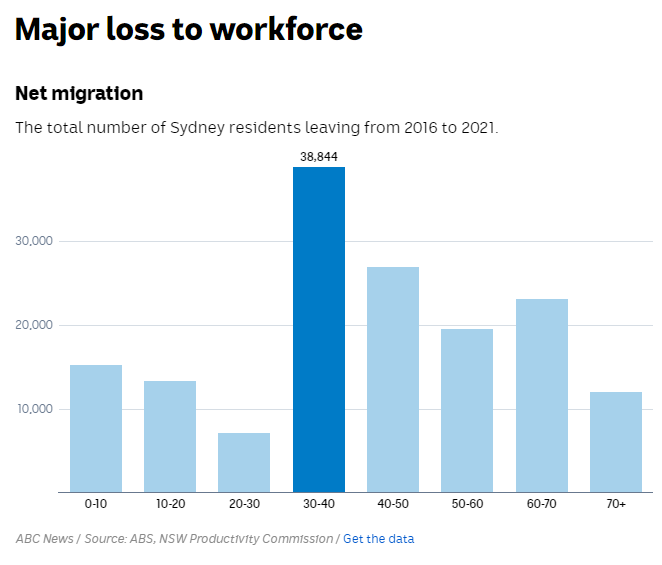
They said that this is problematic because those households aged between 30 and 40 tend to be the most highly skilled and most productive. And that is causing a “brain drain” from Sydney.
I definitely agree with their sentiments. We all know Sydney’s housing market is ridiculous. Whe median house price is about $1.6 million:
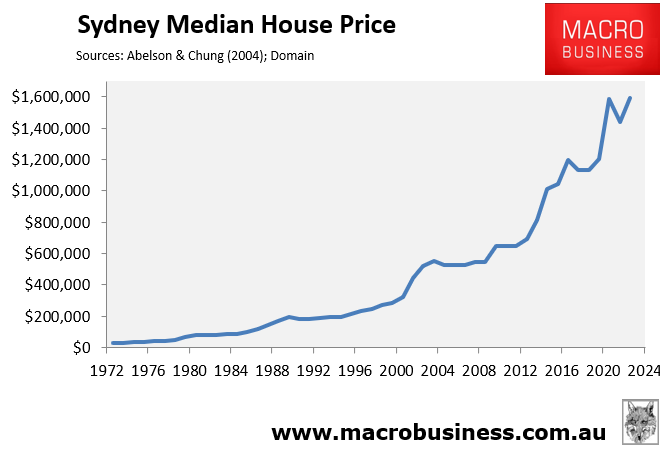
Sydney has got the most expensive rents in the nation which are rising very quickly:
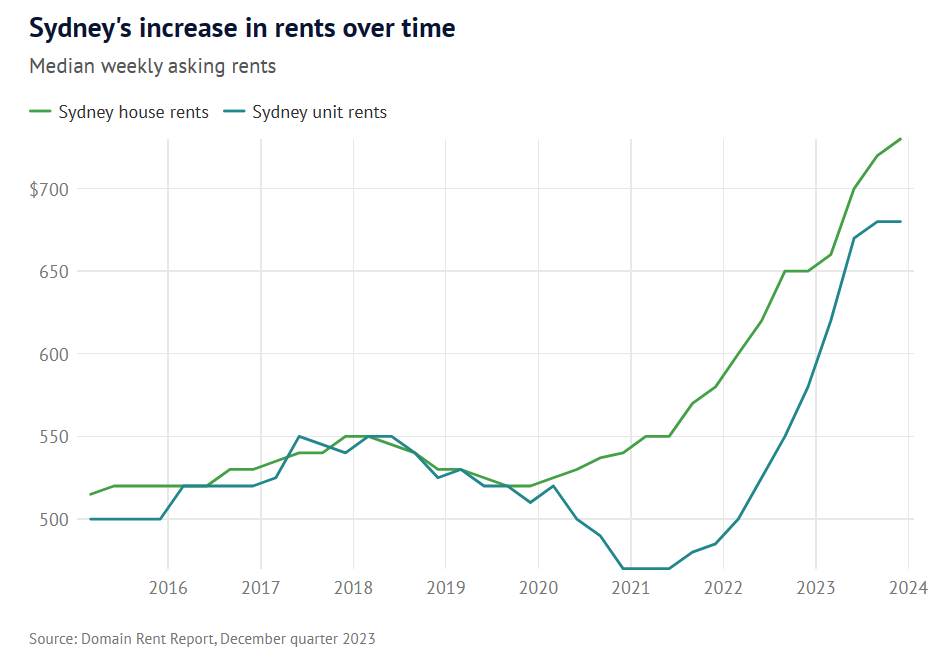
Accordingly, a lot of Sydneysiders are leaving. They have done so for the last decade or so. They’re going up north to places like Brisbane and Southeast Queensland in search of a cheaper and better life. Because Sydney has become unbearable and overly expensive.
So, I do agree with the NSW Productivity Commission’s sentiment.
The problem I have is that the NSW Productivity Commission has said that this is because we’re not building enough homes. It’s all a supply issue.
What they’ve neglected to mention is that one of the main reasons why Sydney has a housing shortage, and has had one for a long period of time, is because Australia runs a mass immigration program and Sydney is one of the key landing points of those migrants.
Last financial year (2022-23) NSW’s population grew by 174,000. And guess what? Net overseas migration in NSW was 176,000.
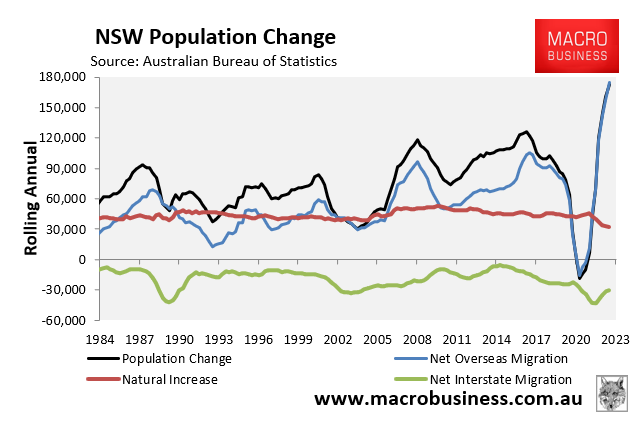
So all of NSW’s population growth, and therefore Sydney’s population growth, was driven by net overseas migration.
And to make matters worse, in the 10 years to June 2023, NSW received nearly 800,000 net overseas migrants, which was 85% of the state’s population growth. And of course, they overwhelmingly land in Sydney.
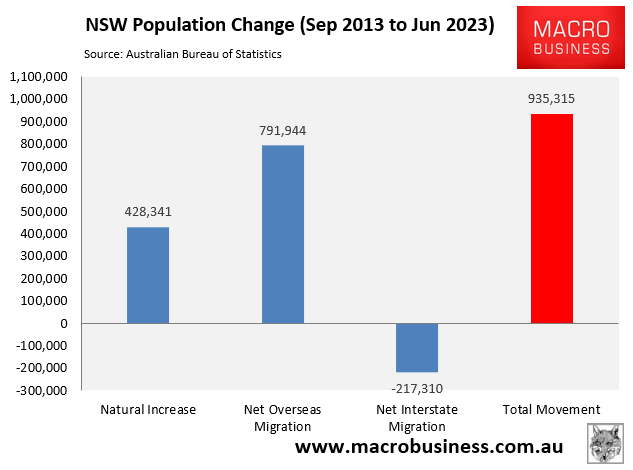
So, for the NSW Productivity Commission to say: “oh look, we’ve got this terrible housing crisis. We’re not building enough homes. We need to relax planning and build apartments everywhere” is kind of a ridiculous solution when the federal government is fire hosing in record numbers of people into the city.
Excessive immigration is creating the shortage. Yet, government organisations like the NSW Productivity Commission, think tanks, etc., always pin the housing problem as a supply issue.
They never bother to mention that Australia is running an immigration program that is way too large and is way beyond the nation’s capacity to supply houses, infrastructure, and government services.
Their solution is to upzone everything for high-rise apartments. And they believe that this is magically going to somehow solve the problem of too much population demand.
Yet, in the second half of last decade, Sydney built a record number of apartments. They had a massive apartment boom.
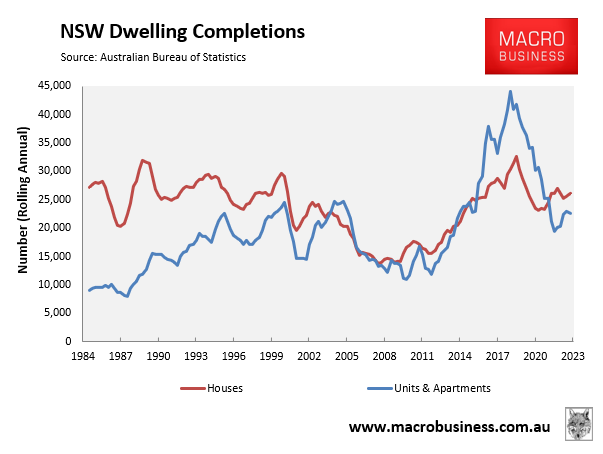
The problem is that just over half of those apartments turned out to be defective, according to the NSW Building Commissioner. Their recent report said that 56% of apartments that were built after 2016 have serious defects.
When we run a population policy or immigration program that is so massive, you have to build homes incredibly quickly, and you’re going to obviously compromise on quality.
So, I think the solution is obviously to re-regulate the industry and to also take the foot off the gas and stop fire hosing so many people into our cities every year.
That will ensure that our construction capacity can keep up and they can take their time building better quality apartments, instead of having to build as quickly as possible and compromise on quality.

